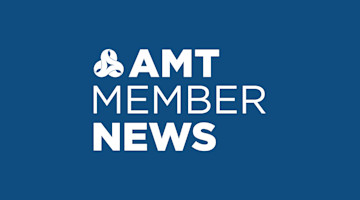NIST Announces Digital Twin and CHIPS Manufacturing Institute
The National Institute of Standards and Technology (NIST) issued a notice of funding opportunity (NOFO) to establish and operate a CHIPS Manufacturing USA institute focused on digital twins for the semiconductor industry. NIST’s CHIPS for America program anticipates up to approximately $285 million in federal funding over five years for the institute to focus on the development, validation, and use of digital twins for semiconductor manufacturing, advanced packaging, assembly, and test processes. The project requires that 50% or more of total funding must come from non-federal sources.
The CHIPS institute will join an existing network of 17 Manufacturing USA institutes designed to secure the future of U.S. manufacturing through innovation, education, and collaboration.On May 16, 2024, the CHIPS Manufacturing USA program will host a one-day hybrid meeting for potential applicants for this funding opportunity. For more information and to register for this event, please visit chips.gov.
PCAST Issues Recommendations on AI
The President’s Council of Advisors on Science and Technology (PCAST) released a report that recommends actions to help the United States responsibly harness the power of artificial intelligence (AI). The report comes in response to President Joe Biden’s executive order on the “Safe, Secure, Trustworthy Development and Use of Artificial Intelligence.”
The report recommends:
Expanding existing efforts to broadly and equitably share basic AI resources to benefit the full diversity of academic researchers, national laboratories, smaller companies, and non-profits.
Expanding secure and responsible access of anonymized federal data sets for critical research needs with appropriate protections and safeguards.
Supporting basic and applied research in AI that involves public-private-academic collaboration.
Adopting principles of responsible, transparent, and trustworthy AI use throughout all stages of the scientific research process.
Encouraging innovative approaches to integrating AI assistance into scientific workflows to facilitate the responsible usage of AI assistance by human researchers creatively conducting high-quality science.
The idea of a science and technology advisory board like PCAST dates back to 1933, when President Franklin D. Roosevelt established his Science Advisory Board. The current PCAST was chartered in 2001 by President George W. Bush and rechartered by President Barack Obama and Biden.
New Programs for Auto Parts Suppliers To Boost EV production
During a visit to Detroit, Vice President Kamala Harris announced $100 million in federal grants for small and medium manufacturers of auto parts to expand or retool their manufacturing to help accelerate the car industry’s transition toward electric vehicles (EV).
The funds will be allocated through two Department of Energy (DOE) initiatives. Half will be distributed by DOE’s Automotive Conversion Grant program, authorized by the Inflation Reduction Act to help companies upgrade existing ICE-focused factories to support electric vehicle manufacturing. The remaining $50 million will come from the Industrial Assessments Center (IAC) Implementation Grant program to help companies improve energy and material efficiency, cybersecurity, or productivity, or reduce the greenhouse gas emissions at their facilities.






